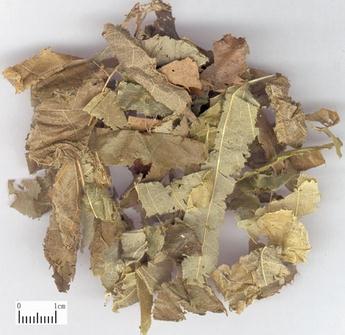Horny Goat Weed Medicine Epimedium macranthum
Horny goat weed (Epimedium) is a pungent ornamental herb found in Asia and the Mediterranean. The chinese call it Yin Yang Huo, which loosely means "licentious goat plant." Legend has it that the name horny goat weed came from a herder who noticed his goats becoming more sexually active after eating the plant. Supplement companies have adopted the provocative name by which it is known in the U.S. Horny goat weed was named epimedium because it is similar to a plant found in the ancient Asian kingdom of Media, now a part of Iran. Epimedium is a genus of many related plant species and some are used for medicinal purposes, including Epimedium sagittatum, Epimedium brevicornum, and Epimedium koreanum. Although horny goat weed has a history of traditional use for disorders of the kidneys, joints, and liver, its principle use is as an aphrodisiac and to combat fatigue.
Other names: Epimedium, Yin Yan Huo
Horny goat weed is a leafy plant that is native to Asia and the Mediterranean region.
Horny goat weed has a long history of use in traditional Chinese medicine.
Why Do People Use Horny Goat Weed?: Erectile Dysfunction and Sexual Dysfunction in Women
Animal studies indicate that horny goat weed may work by increasing nitric oxide levels, which relaxes smooth muscle and lets more blood flow to the penis or clitoris.
Horny goat weed also appears to act by inhibiting the PDE-5 enzyme.
Some evidence suggests horny goat weed may modulate levels of the hormones cortisol, testosterone, and thyroid hormone, bringing low levels back to normal.
Menopause
A study tested the estrogenic activity of 32 herbs used for menopause. Epimedium brevicornum, was one of the highest estrogenic activity.
Safety
There isn't enough information on horny goat weed to safely recommend it for erectile dysfunction or menopause.
In one study, epimedium koreanum was found to cause significant inhibition of the cholinesterase enzyme. This can theoretically increase the risk of loss of muscle co-ordination and jerky movements due to acetylcholine buildup in muscles.
Drug Interactions
No drug interactions have been reported.
Sources:
Chen KK and Chiu JH. Effect of Epimedium brevicornum Maxim extract on elicitation of penile erection in the rat. Urology. 67.3 (2006):631-5.
Oh MH et al. Screening of Korean herbal medicines used to improve cognitive function for anti-cholinesterase activity. Phytomedicine. 11.6 (2004):544-8.
Zhang CZ et al. In vitro estrogenic activities of Chinese medicinal plants traditionally used for the management of menopausal symptoms. Journal of Ethnopharmacology. 98.3 (2005):295-300.

